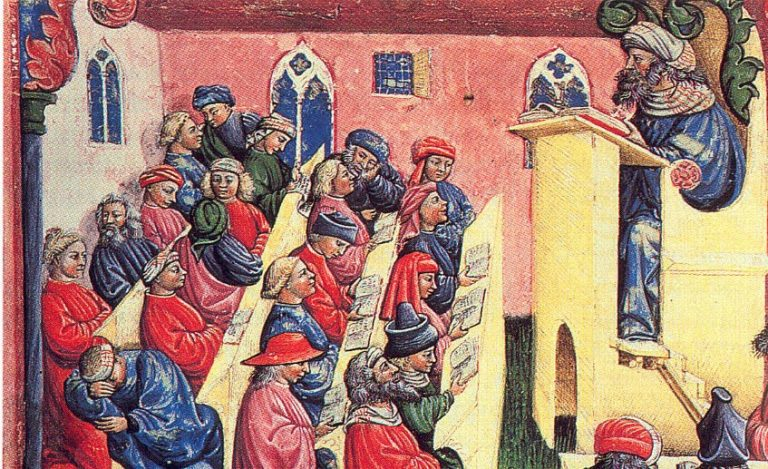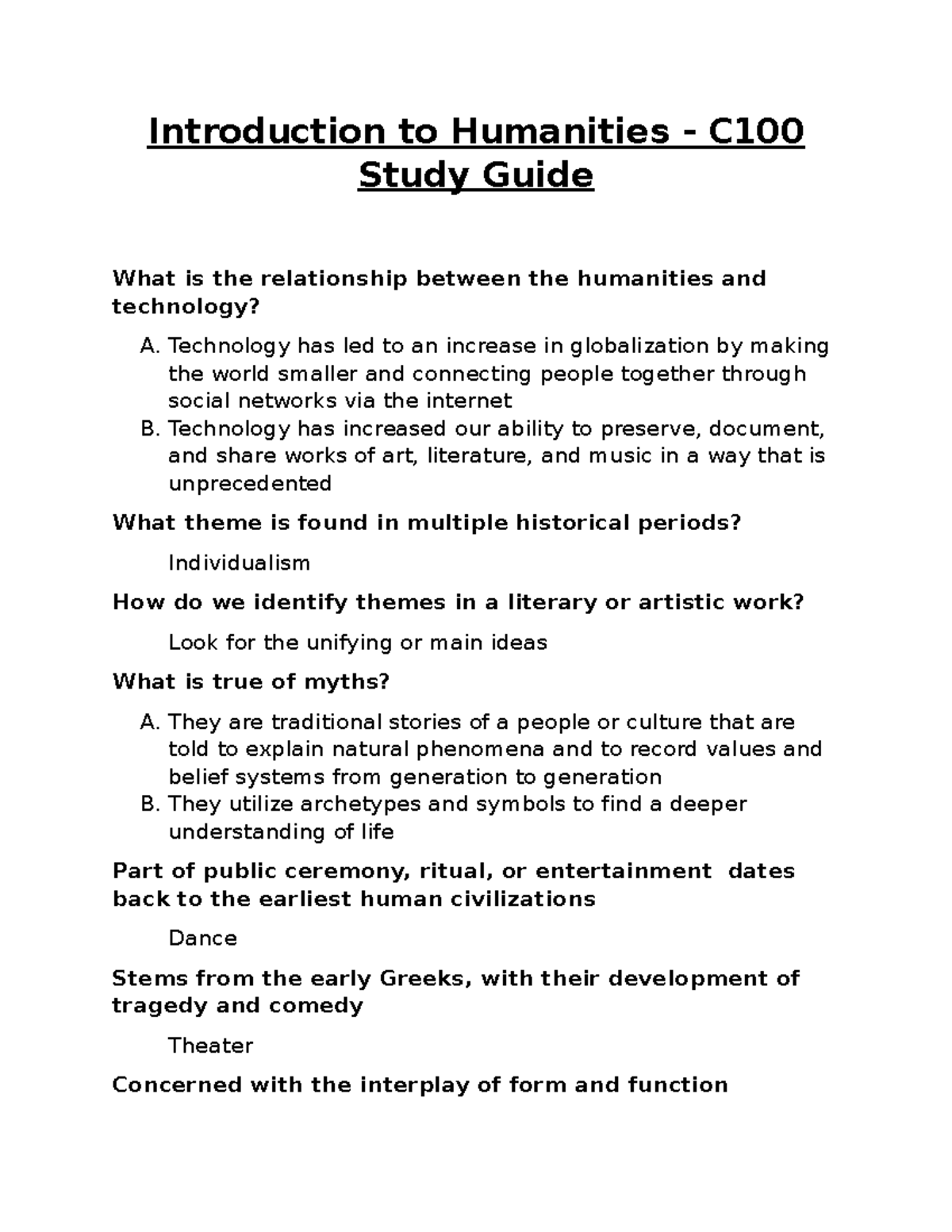The Medieval Studies Conference stands as a beacon for scholars around the globe, drawing more than 800 academics to Harvard Yard for its 100th annual meeting. This vibrant gathering is more than just a congregation of medievalists; it embodies the evolution of medieval scholarship, exploring interdisciplinary studies that connect history, literature, and culture. From discussions on Chaucer’s influence to sessions dissecting medieval trade agreements, the conference facilitates an exchange of ideas that deepens understanding of centuries-old traditions. Participants engage in workshops and presentations that showcase the breadth and depth of research in the field, highlighting advancements that have kept medieval studies relevant in today’s academic landscape. With its historical roots and commitment to fostering innovative dialogue, the Medieval Studies Conference is an essential cornerstone for those dedicated to uncovering the complexities of the medieval world.
The Medieval Studies Conference is a premier event that brings together scholars focusing on the medieval era, where diverse topics such as medieval literature, historical trade practices, and cultural exchanges are explored. This conference serves as a platform for academics to examine the broad timeline of medieval influences on contemporary thought, bridging gaps between various disciplines. The event highlights the significance of studying figures like Chaucer and their lasting impact on literature while also touching on practical aspects of the time, such as commerce and societal agreements. Researchers present their findings, engaging in discussions that reflect the interdisciplinary nature of the field, ensuring that insights gained are both historical and pertinent to modern academic inquiries. This rich tapestry of knowledge facilitates a deeper appreciation of the medieval past and its relevance today.
The Legacy of the Medieval Academy of America
The Medieval Academy of America has played a pivotal role in shaping the landscape of medieval scholarship since its inception in the early 1920s. Founded in the Boston-Cambridge area where intellectual currents flourished, the Academy has fostered a community of scholars dedicated to the rigorous study of medieval history, literature, and culture. Celebrating its 100th anniversary, this organization continues to draw researchers from around the globe, exemplifying the ongoing relevance of medieval studies in contemporary academia.
With an ever-increasing number of interdisciplinary studies, the Academy provides a platform for innovative ideas and dialogues. Researchers are encouraged to explore connections between medieval themes and modern contexts, as evidenced by presentations at their annual conferences. The commingling of diverse academic perspectives not only enriches the field but also enhances the visibility of medieval scholarship as a vital discipline at Harvard and beyond.
Exploring Chaucer’s Influence in Modern Literature
Geoffrey Chaucer remains a towering figure in literary history, whose influence can be traced through centuries of work. The exploration of his texts, particularly “The Canterbury Tales,” offers invaluable insights into the complexities of human experience and expression. Scholars today revisit Chaucer’s themes through a modern lens, as seen in discussions about the interconnectedness of rumor, truth, and the role of the literary voice in the digital age.
Engaging with Chaucer’s work in the modern literary landscape reveals the timelessness of his inquiries into authority and authenticity. Recent analyses, such as Fernanda García-Oteyza’s comparisons between Chaucer and contemporary authors like Patricia Lockwood, show how ancient texts continue to resonate with current societal issues, weaving a rich tapestry of relevance that connects past and present.
The Role of Interdisciplinary Studies in Medieval Research
The field of medieval studies thrives on interdisciplinary approaches that blur the boundaries between history, literature, and art. As demonstrated during the Medieval Studies Conference at Harvard, collaborative methodologies have emerged, enriching research outputs and enhancing the understanding of medieval contexts. By integrating perspectives from various disciplines, such as linguistics and archaeology, scholars are able to offer more nuanced interpretations of medieval life.
Furthermore, the emphasis on interdisciplinary studies is essential for addressing complex themes such as medieval trade agreements and societal structures. Elena Shadrina’s research on Venetian trade contracts exemplifies how different fields—history, economics, and law—converge to provide a comprehensive understanding of medieval commerce. This multifaceted approach invites scholars to view familiar texts and artifacts through diverse academic lenses, ultimately expanding the scope of medieval scholarship.
Global Perspectives on Medieval Studies
As the field of medieval studies evolves, there is a growing focus on incorporating global perspectives that reflect the interconnected nature of the medieval world. This shift encourages scholars to examine areas beyond the traditional Western narratives, exploring the medieval experiences of regions such as Africa, East Asia, and the Islamic world. Such initiatives not only diversify the academic discourse but also highlight the richness of cultural exchanges during the medieval period.
Workshops and presentations, like those held at the recent Medieval Academy conference, play a vital role in promoting this global approach. By encouraging graduate students to think critically about the Global Middle Ages, scholars are shaping a more inclusive narrative that acknowledges the contributions and voices of diverse civilizations. This effort is crucial for understanding the broader implications of medieval studies and its relevance in today’s multicultural society.
Reviving Medieval Festivals and Traditions
The revival of medieval traditions, such as the Óenach Tailteann, sparks interest in how cultural practices shape identity and community. Colin Brady’s research on the Tailteann Games exemplifies the significance of historical events as foundations for contemporary cultural expressions. By examining these festivals, scholars uncover insights into communal values, social structures, and the historical legacy of medieval societies.
Moreover, modern reconstructions of medieval festivals allow for an immersive exploration of heritage, making these historical moments tangible for today’s audiences. This revival serves not only as a celebration of history but also as a platform for dialogue about cultural continuity and change. Events that highlight these traditions promote a deeper understanding of the medieval past and its resonance in modern contexts.
The Evolution of Medieval Scholarship
Medieval scholarship has undergone significant evolution over the past century, transitioning from a focus on canonical texts to embracing methodological diversity and inclusivity. Scholars are now encouraged to analyze medieval literature, art, and history within broader societal contexts, thereby redefining previous paradigms of inquiry. The recent Medieval Academy Conference showcased this evolution by featuring a wide range of topics, including medieval trade agreements and literary influences, all presented through various disciplinary lenses.
This shift signifies a maturation of the field, as it responds to contemporary academic trends that prioritize interdisciplinary collaboration and global engagement. As the limited perspectives of the past are challenged, modern scholars are forging innovative pathways that not only re-contextualize medieval studies but also contribute to the growth and relevance of humanities disciplines in a rapidly changing world.
Finding Community in Medieval Studies
The Medieval Studies Conference at Harvard provided an invaluable opportunity for scholars to network and engage with one another in person. The communal aspect of these gatherings fosters a sense of belonging among researchers, allowing them to share their work and ideas in a supportive environment. This collaboration aids in building relationships that can lead to future projects, co-authorships, and collaborative studies within the field.
Additionally, the conference atmosphere encourages a palpable exchange of knowledge and inspiration among scholars at all career stages. For many attendees, including graduate students like Emily Sun, these interactions are critical for professional development. Engaging in real conversations about research fosters intellectual growth while also reinforcing the importance of community within the specialized area of medieval studies.
Innovative Pedagogy in Medieval Studies
Teaching medieval studies requires innovative pedagogy that adapts to the needs of contemporary students. The recent pedagogy workshop highlighted at the Medieval Academy Conference focused on integrating global perspectives into medieval studies curricula. By challenging traditional Eurocentric narratives, this approach prepares students to engage in a broader discussion about the medieval world and its relevance to modern society.
Incorporating diverse voices and methodologies into teaching not only enriches the learning experience but also equips students with the critical thinking skills necessary for interdisciplinary research. As educators embrace dynamic pedagogical strategies, they can inspire the next generation of medievalists to pursue creative inquiries that bridge the gap between past and present.
Continuing the Conversation on Medieval Traditions and Culture
Continued exploration of medieval traditions is crucial for understanding the cultural and historical contexts from which they emerged. By examining practices such as trade agreements and legal frameworks, scholars provide insight into the socio-political landscape of medieval societies. This ongoing conversation not only illuminates the complexities of the past but also reveals parallels in contemporary governance and economic interactions.
Scholarly discussions and conferences play a vital role in advancing this exploration. As scholars share their research findings on topics ranging from Chaucer’s literary contributions to medieval trade practices, they contribute to a collective understanding that informs both historical scholarship and present-day cultural dialogues. The legacy of these discussions ensures that the significance of medieval traditions remains vibrant in both academia and public discourse.
Frequently Asked Questions
What is the significance of the Medieval Studies Conference at Harvard?
The Medieval Studies Conference, organized by the Medieval Academy of America, is a significant event that brings together over 800 medievalists from various disciplines to discuss interdisciplinary studies within medieval scholarship. It acts as a platform for sharing research, networking, and examining how medieval influences like those of Geoffrey Chaucer continue to resonate in contemporary literature.
How does the Medieval Studies Conference promote interdisciplinary studies?
The Medieval Studies Conference features workshops and presentations that interconnect various fields such as history, literature, religion, and trade agreements from the medieval era. By including diverse topics, such as medieval trade agreements and Chaucer’s influence, the conference encourages collaboration among scholars, broadening the scope of medieval studies.
Who participates in the Medieval Studies Conference?
The Medieval Studies Conference attracts a diverse group of participants, including academics, graduate students, and noted scholars from around the world. This year’s conference featured over 500 speakers from 23 countries, showcasing global perspectives on medieval studies.
What types of research are presented at the Medieval Studies Conference?
Research presented at the Medieval Studies Conference covers a wide array of topics, including medieval literature, trade agreements, and the global influence of the Middle Ages. For example, presentations include studies on Chaucer’s literary contributions and medieval Venetian trade practices, illustrating the rich diversity of medieval scholarship.
How has the Medieval Studies Conference evolved over the past century?
The Medieval Studies Conference has evolved significantly over the past century, reflecting changes in scholarship and expanding its focus to encompass global medieval studies. With a rich history dating back to its founding in early 20th century Cambridge and Boston, the conference continues to adapt to modern academic conversations and interdisciplinary approaches.
What role does Chaucer play in discussions at the Medieval Studies Conference?
Chaucer, a monumental figure in medieval literature, plays a vital role in discussions at the Medieval Studies Conference. Scholars explore his impact on literary authority and creativity, drawing parallels between his works, such as ‘The Canterbury Tales,’ and contemporary literary themes, thereby highlighting the enduring relevance of medieval texts in modern scholarship.
What can attendees expect from the Medieval Studies Conference?
Attendees of the Medieval Studies Conference can expect a rich program of plenary addresses, workshops, and discussions led by esteemed scholars. They will engage in meaningful dialogue across various topics, ranging from medieval trade to interdisciplinary studies, while networking with peers and expanding their academic horizons.
How does the Medieval Studies Conference contribute to the understanding of medieval trade agreements?
The Medieval Studies Conference contributes to understanding medieval trade agreements by presenting research that delves into historical practices, such as verbal contracts and documentation used in trade. This focus on economic history enhances our knowledge of medieval society and its global connections.
Why is the 100th anniversary of the Medieval Studies Conference notable?
The 100th anniversary of the Medieval Studies Conference is notable as it represents a century of medieval scholarship, showcasing the evolution of the field. This milestone also provides a unique opportunity to reflect on past achievements and future directions in medieval studies, reinforcing the conference’s importance as a pivotal event for academics.
| Key Point | Details |
|---|---|
| Conference Overview | The Medieval Academy of America’s 100th annual meeting took place at Harvard Yard, gathering 800 academics from 23 countries. |
| Interdisciplinary Collaboration | The conference highlighted the interdisciplinary nature of medieval studies, incorporating various fields and perspectives. |
| Historical Significance | The event marked a homecoming for the Medieval Academy of America, last hosted at Harvard in 1975. |
| Global Themes | Papers presented covered medieval contexts from around the world, including the Mediterranean, British Isles, Africa, and beyond. |
| Innovative Research | Presentations included topics such as medieval trade agreements and the revival of historical festivals like the Óenach Tailteann. |
| Scholarship Impact | Attending the conference allowed for networking and discussion amongst academics, enhancing the scholarly experience. |
Summary
The Medieval Studies Conference served as a pivotal gathering that mounted a century of scholarly exploration in medieval studies. Bringing together scholars from diverse backgrounds, the conference established a vibrant platform for interdisciplinary collaboration and exchange. With engaging discussions on pertinent medieval themes and innovative research presentations, this event not only paid homage to the rich history of the field but also prophetically examined its future directions. Ultimately, the success of the Medieval Studies Conference reinforced its role as a cornerstone of medieval scholarship, urging participants to reflect on the interconnectedness of past and present narratives in a global context.



